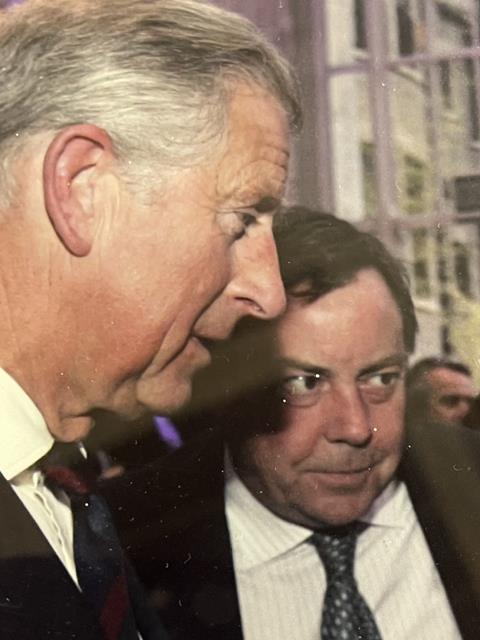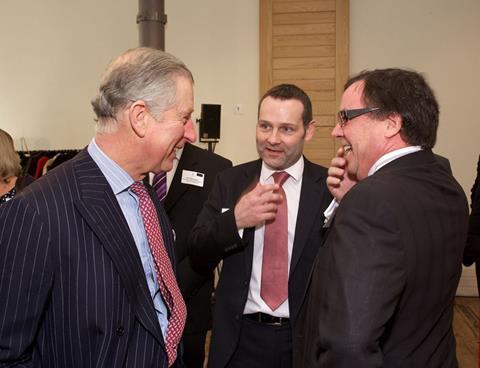King Charles III is the new head of a diverse and divided state but he has significant strengths and his support for the built environment is welcome, writes Richard Steer of Gleeds

King Charles III has a nice ring to it – as does the fact that we are entering the new Carolean age. One can only hope that the new King Charles fairs better than his predecessor Charles I, an arrogant, deceitful, and delusional monarch who ended up causing a disastrous civil war and being beheaded.
Charles II was, by all accounts, a more thoughtful and astute man nicknamed the “merry monarch” who, like the current king, had a fascination for science, botany, medicine, gardening – becoming the first president of the Royal Society.

They say it is never easy taking on a role when the person before you has been a rousing success. Not a huge problem for the “merry monarch” back in the 1600s but, for our new King Charles, he has to follow on from his mother, Elizabeth II – not any easy task.
She was unique in postwar history, probably the most famous woman in the world and her death brought much of the globe to a standstill. She came to the throne in a Coronation that took place on 2 June, 1953, when things were incomparably different in the UK to May 2023.
King Charles III is inheriting a far more diverse and divided nation than his mother did
It was still a postwar economy, and considered odd if you were a non-smoker. Washing machines were just taking off as the go-to gadget…
The most modern and sought-after piece of tech in 1953, however, was the television – cumbersome, black and white, and rare – with only one in four households owning one. Pubs closed at 10pm. In sport, Tommy Taylor became the most expensive footballer in the world with an eye watering transfer fee of £29,999 to move from Barnsley to Manchester United.
King Charles III is inheriting a far more diverse and divided nation than his mother did. While many millions will no doubt tune into the coronation around the world, it cannot hope to have the impact of the event held in 1953.
It was such a different age. For a start, there was only one television channel available, so Her Majesty had a rather captive audience. Back then, the Queen and her mainly noble-born and ex-military team could control the narrative with relative ease, but today Charles has to battle social media, republican billionaire mass media barons, and even prime-time interviews from his own son, Harry.
Cometh the challenge, cometh the monarch, however, and I feel we are fortunate to have someone on our throne who, in many ways, is a renaissance man. He was railing against climate change and championing sustainability long before Greta Thunberg’s mother was born.

I have met him on several occasions and he is engaging, thoughtful and knowledgeable about the built environment, viewing life from his own perspective. I do not agree with all of his views on architecture, but I would rather have a King who is interested in these matters than someone who is absorbed in trivia.
Perhaps we should view this new Carolean age as an interregnum – a full stop, ending the reign of his remarkable mother and bridging the nation until his politically astute and more worldly son, William, takes over.
He will be a good king for the built environment. He will invest in the royal estate and may want to champion construction projects with a long-term, considered outcome rather than just for a quick PR boost.
It will be a challenge for King Charles III to walk the fine line between political neutrality and statesmanship but, as with any handover, there will need to be a period of adjustment, a breathing space while he forms his own court and keeps his own counsel.
As for our sector, it is my view that he will be a good king for the built environment. He will invest in the royal estate and may want to champion construction projects with a long-term, considered outcome rather than just for a quick PR boost.
He is someone who will chivvy from the side-lines, but he will not absolve himself from championing sustainability. I am therefore optimistic for the future and hope that he will be remembered as being more like merry Charles II than miserable Charles I.
Richard Steer is chair of Gleeds Worldwide and a Building the Future commissioner

























No comments yet